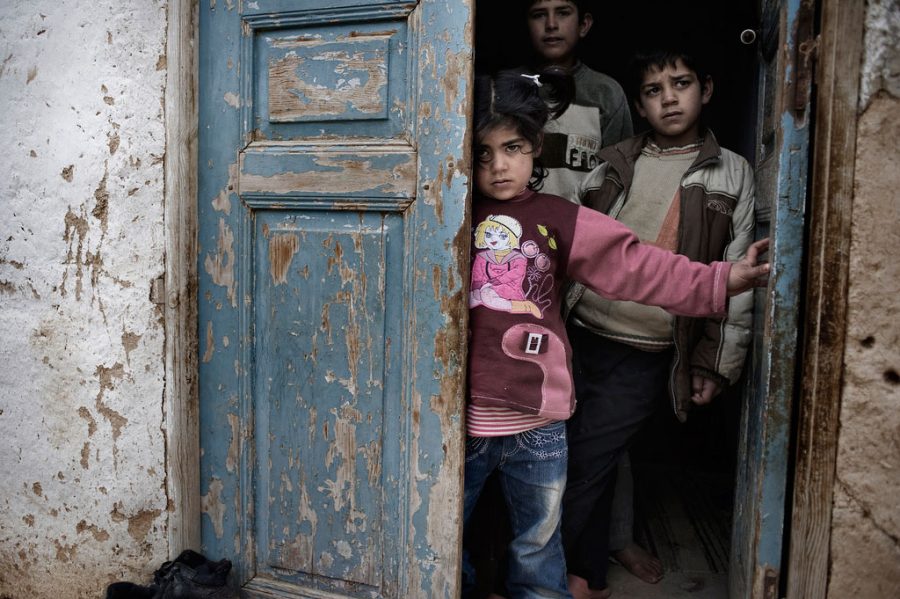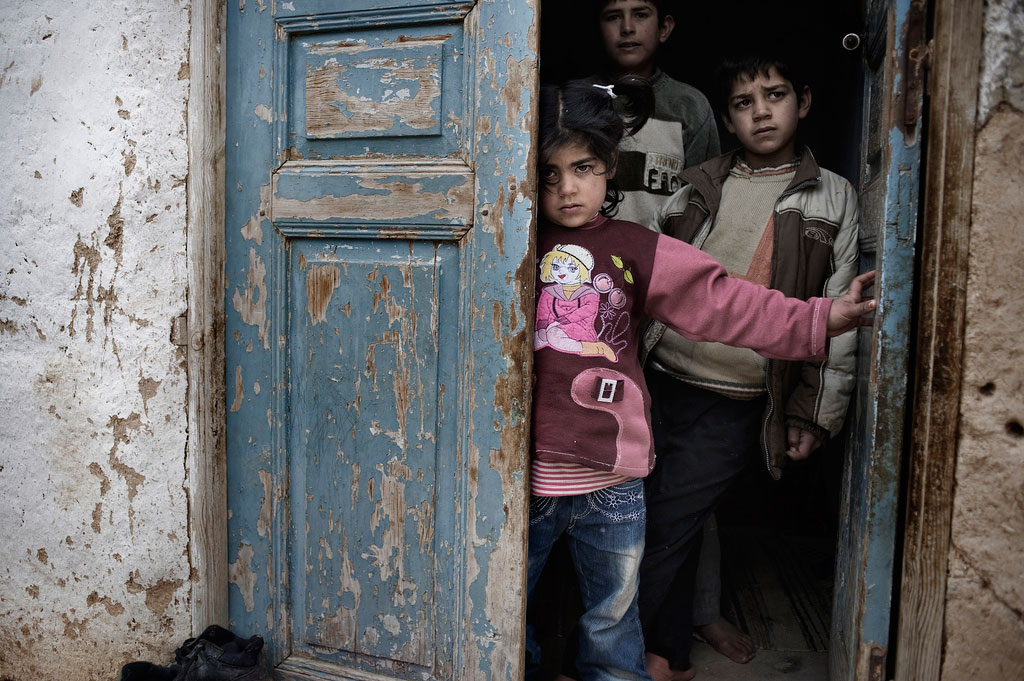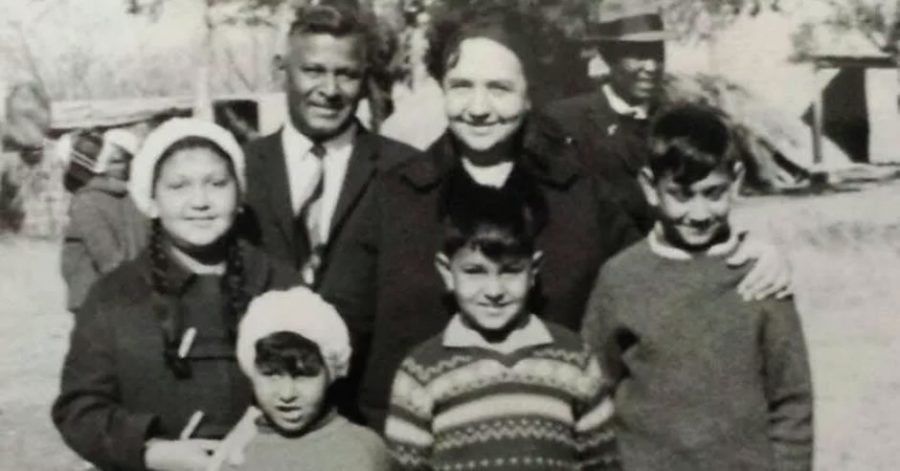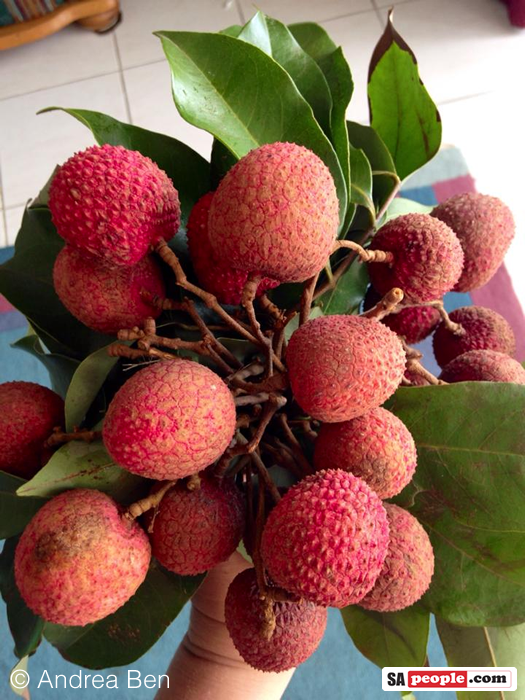
When a Childhood is Lived in Horror…
We prayed from the safe, secure comfort of our little world (in KwaZulu-Natal, South Africa) where nothing bad was possible… writes CHARMAIN NAIDOO. My parents have been much on my mind this week. It’s not unusual, at this time of the year, close to Christmas and even closer to my birthday, for me to sink […]

We prayed from the safe, secure comfort of our little world (in KwaZulu-Natal, South Africa) where nothing bad was possible… writes CHARMAIN NAIDOO.

My parents have been much on my mind this week. It’s not unusual, at this time of the year, close to Christmas and even closer to my birthday, for me to sink into a nostalgic reverie.
The wistfulness extends – well it has this year – to sadness and a sense of longing for simpler times… happier times: of the unwavering, unconditional love of my mum and dad, a devotion given so completely that there was no doubt of it, a devotion that made me feel gathered in and safe and protected.
I had a happy, carefree childhood, gilded I’m sure by the many intervening years and the heightened memory that shines rosy light on the distant past.
Happier times of fresh faced, shiny youth and the hope and optimism that goes with youthful idealism. Times of great expectation, and devil may care spirit in which recklessness overpowered reserve and caution.
Things were simpler then; everything seemed to have a place of its own, to have a predetermined path along which destiny followed.
My parents were schoolteachers. Dad was the headmaster of the local high school I went to, Mum was the librarian and taught history and biology.

We four Naidoo children, had a natural (we thought then, humdrum and even a bit dreary) rhythm to our lives: early rising, seated at the breakfast table within half an hour of getting up, being served a hot breakfast cooked by our mum, or dad.
My father read the paper, The Natal Mercury while we ate Jungle Oats and banana and honey; scrambled egg on toast, eggy soldiers. Often Dad threw out clues asking us for help as he did the crossword puzzle. Our mother disapproved of make up, but even her vanity demanded a smudge of rouge, a dab of colour to her lips, so she smudged and dabbed at the table.
Mornings were, we all thought, a difficult time for our Mum. She asked so many questions of us: This dress? Too tight? Too short? Were there any holes in her hair? It was the 60s. Mum’s hair was teased into a beehive hairstyle, caught at the back with clips and hairpins. She worried that she’d left a part of her scalp uncovered and so we were made to walk around her looking for what she called her bald bits.
My father loved my mother with a quiet intensity. He never contradicted her. He was always respectful to her, careful around her. He once told me that my mother was fragile, like the fragile beauty of the camellias he said, leaving me no doubt that that was why they became her favourite flower, an attempt to make her look frail and helpless, mostly to my adoring father.
I thought of my mother as robust and strong and capable. A plain, sturdy no nonsense woman whose style icon was The Queen.
But at these breakfasts, when her diffidence made her seem vulnerable, when we saw her self-doubt translate into hesitancy and the search for approval, my father’s vision of her seemed real. She was, at this moment, fragile like a camellia.
And when we were done eating and “school checked” – homework books packed, shoes polished, hair braided into two plaits, ribbons affixed, we went – all six as one – to the car, to school.
In the afternoons, we stayed late for soccer practice or went to piano lessons or came home, and ate lunch, a sandwich and tea, did our homework, chased the dogs round the garden, fought with each other, read our books, played pick-up-stix, took bright red apples from the big wooden fruit bowl, polished them and ate them one crunchy bite after the next.
And because they were teachers (in the good old days when teaching was teaching and the admin was light) mum and dad came home when their day ended, in the middle of the afternoon.
When we were little, in the summer, when mangoes were in season and watermelons were red and juicy and litchis sweet and gooey our Mum would put us in the bath with a bowl of fruit and we would suck the flesh off the mangoes down to the stringy pips, and let the juice of the watermelons trickle down our throats, inside and out.
 The litchis we handed to our mum to peel, remove the firm white sugary pulp from around the brown seedpod so we could pop the syrupy deliciousness straight onto expectant tastebuds.
The litchis we handed to our mum to peel, remove the firm white sugary pulp from around the brown seedpod so we could pop the syrupy deliciousness straight onto expectant tastebuds.
Mum and dad had their own rhythm too. In the afternoons, they went shopping and cooked and dad went back to his newspaper and mum marked papers.
In the early evening, we sat at the same table we’d eaten breakfast at, and shared the meal my parents had cooked. Mutton curry with potatoes served with basmati rice, cauliflower cooked with peas, mince curry, tin fish curry (at the end of the month when the pantry was almost bare), tough chicken cooked in a creamy sauce, lamb chops crumbed and deep fried.
And then bath time. How we managed, all six of us, with one bathroom still flummoxes me. We took turns sharing bath water, drawing straws for it. The child who went last had to deal with the soapiest, scummiest, greyest water.
A dazzling white washing machine stood in the shower, never used. Mum thought washing by hand was so much better. Patricia our housekeeper agreed!
Clean and in our pyjamas, we climbed into our parents’ bed where we all listened to the radio for an hour, enthralled: The Mind of Tracey Dark, Squad Cars, Consider your Verdict.
Mum knelt with us beside our beds, under the picture of our guardian angel, and we prayed: for granny and grandpa and our aunts and uncles and each other and rain and our teachers and for hungry people all over the world.
We prayed from the safe, secure comfort of our little world where nothing bad was possible, where we were full, and happy and sleepy and safe.
A very different childhood from that being had by children in war torn Syria, where normalcy is being bombed, where death is in the realm of the possible at all times.
More than 30 children were killed in the fighting in Aleppo this week. CNN recorded an interview with their parents, numb and shattered.
The Bayan Children’s Hospital in Aleppo had come under attack; and a blood bank and ambulances there to ferry the sick and hurt to places of supposed safety, hospitals.
CNN interviewed the father of a four-year-old boy and his 6-year-old sister. Their lives have a distinctly different rhythm from my childhood: they never leave their already bombed home, they are constantly hungry, they know to run and hide in the safest part of the house when the firing start. They are familiar with types of guns: pistols assault rifles sniper rifles.
They know that if they are hurt – shot or buried after an airstrike – there is no help coming, no ambulances to take them to a clean hospital, no blood bank to give them the maximum chance of recovery.
It’s shudder inducing, and the fear closed my throat as I turned the television off, unable to bear it any longer.
But not before I watched the father we as he told how his children had known no other life, only fear and dread and war and guns and hunger and anguish.
I thought of my own dad, then, of how it would have broken him if he had to expose his beloved children to such a life.
And I am ashamed for being grateful for having grown up in happy circumstances, for being fed and educated and clothed…
All the Syrian children know is that they are loved. It’s just not enough.
By: Charmain Naidoo
***
This article first appeared on the Rand Daily Mail and is republished here with the kind permission of Charmain Naidoo.
CHARMAIN NAIDOO has worked as a journalist for 30 years. She has now retired and is writing a book.
Watch Video: Barack Obama meets 6-year-old kid who sent him a letter to help Refugees
Obama recently met the little boy who sent him a letter saying: “Dear President Barack Obama, remember the boy who was picked up by the ambulance in Syria? Can you please go get him and bring him to our home?”
Remember Alex, the 6-year-old who wanted to help refugees? Last week, @POTUS invited him to the White House: https://t.co/6BCDGROi0w
— White House Archived (@ObamaWhiteHouse) November 18, 2016
